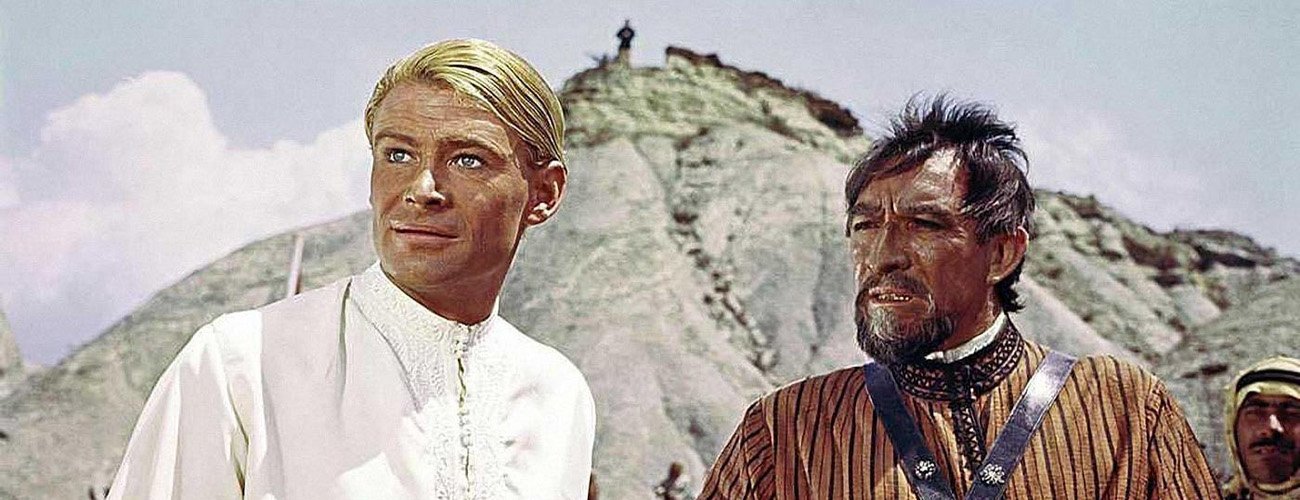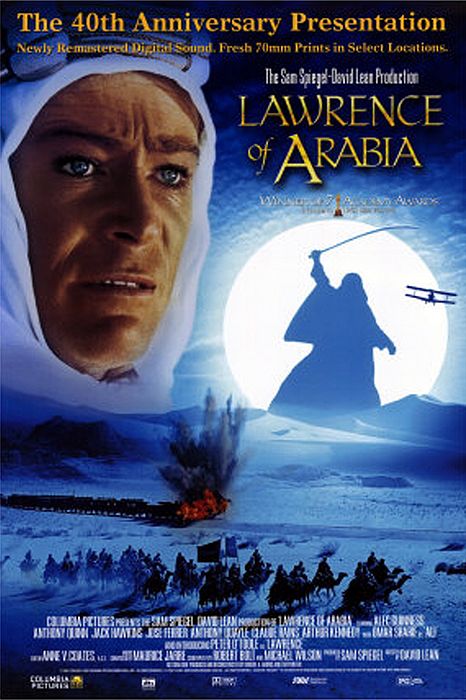“Lawrence of Arabia” is a 1962 epic film directed by David Lean, chronicling the life of T.E. Lawrence, a British Army officer renowned for his role in the Arab Revolt during World War I. The narrative begins with Lawrence’s death in a motorcycle accident, followed by a flashback to his early military career. Stationed in Cairo, Lawrence is dispatched to assess Prince Faisal’s revolt against the Ottoman Turks. Defying orders, he embarks on a daring journey across the Nefud Desert, uniting disparate Arab tribes to launch a surprise attack on the port city of Aqaba.

As Lawrence’s influence grows, he grapples with internal conflicts and the complexities of his dual allegiance to Britain and the Arab cause. The film delves into themes of identity, loyalty, and the moral ambiguities of war, culminating in the capture of Damascus and the subsequent political turmoil that challenges Lawrence’s vision of Arab independence.

“Lawrence of Arabia” is widely regarded as one of the greatest films ever made. In 1991, it was deemed “culturally, historically, or aesthetically significant” by the United States Library of Congress and selected for preservation in the National Film Registry. In 1998, the American Film Institute placed it fifth on their 100 Years…100 Movies list of the greatest American films, and it ranked seventh on their 2007 updated list. In 1999, the British Film Institute named the film the third-greatest British film. In 2004, it was voted the best British film in The Sunday Telegraph poll of Britain’s leading filmmakers.

The film was nominated for ten Oscars at the 35th Academy Awards in 1963, winning seven, including Best Picture and Best Director. It also won the Golden Globe Award for Best Motion Picture – Drama and the BAFTA Awards for Best Film and Outstanding British Film. The dramatic score by Maurice Jarre and the Super Panavision 70 cinematography by Freddie Young also won praise from critics




